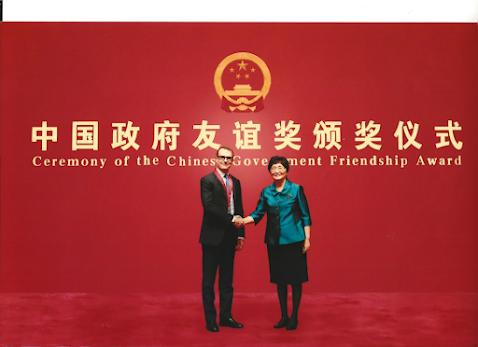More than 10 alien turtles almost entered our country! Successfully intercepted by Shanghai Pudong Customs
Author | Tian Wenjie
Recently, officers of Shanghai Pudong International Airport Customs intercepted 14 live ornamental turtles in a traveller's luggage, including 1 Mccord's Box Turtle, 10 Spotted turtles and 3 Terrapene carolina bauri.
The Mccord's Box Turtle is a Grade II protected animal in China; the Spotted Turtle and Terrapene carolina bauri are mainly distributed in Canada and the United States, and have not been reported in China. They're alien species with strong adaptive ability and outstanding reproductive ability, which will pose a potential threat to China's ecological security and biosecurity if imported.
The traveller hid more than 10 live turtles in his luggage without authorisation in an attempt to cross the border, in violation of the Law of the People's Republic of China on Biosecurity and Law of the People's Republic of China on Quarantine of Animals and Plants at Entry and Exit and its Implementing Regulations. China's relevant laws and regulations clearly stipulate: "The introduction of alien species is not permitted without authorisation" and "It is prohibited to bring or send live animals and plants into China".
百色闭壳龟 (English name: Bose box terrapin, Mccord's Box Turtle; Latin name: Cuora mccordi) is labelled as "critically endangered" on the IUCN Red List of Threatened Species, and listed in Appendix Ⅱ of the Convention on International Trade in Endangered Species of Wild Fauna and Flora (CITES), and is listed in the List of National Key Protected Aquatic Wildlife Revised by the Ministry of Agriculture in 2000, which belongs to the second grade of national key protected aquatic wildlife and "'three-have' protected animals", and is also listed in the List of Beneficial Terrestrial Wildlife under State Protection or of Important Economic or Scientific Research Value.
This species is an endemic and rare turtle species in central Guangxi, China, distributed only in Baise area of Guangxi, China, and is one of the most endangered endemic turtle species in China. Due to the destruction and reduction of its habitat and breeding environment, the difficulty of natural proliferation, and its high economic value, it has been captured repeatedly, and its wild resources have been seriously damaged and its numbers are very small. Illegal trade in the market has also led to a decreasing number of its wild populations.
星点水龟 (scientific name: Clemmys guttata, English: Spotted turtle) is ranked as "endangered" on the IUCN Red List of Threatened Species, with a declining population; it is listed in Appendix II of the Convention on International Trade in Endangered Species of Wild Fauna and Flora (CITES). The species plays an important role in the ecosystem, but faces a number of threats, including illegal international trade.
According to Wikipedia information, Terrapene carolina bauri is a non-threatened species.
I can't help but wonder: where did these turtles come from, where are they going, and what are they used for? Are they wild or captive bred?
The first two species of turtles are listed in Appendix II of the Convention on International Trade in Endangered Species of Wild Fauna and Flora (CITES), and the current illegal international trade may pose a potential risk to their survival.
Rampant illegal international trade can drive illegal hunting and breeding of wild turtles, thus destroying the balance of the ecosystems in the areas of origin. The prevalence of exotic petting has also exacerbated the illegal wildlife trade (IWT); and the random introduction of alien species, once abandoned (released), escaped, or accidentally released into the wild due to other factors, may pose a threat to local species, directly upgrading them to become "invasive alien species". Not only do they compete with local turtles for food and habitat, they may also spread diseases, leading to a sharp decline in the number of local turtles and destroying the ecological balance. The ecological harm caused by such behaviour is almost irreversible and will seriously threaten our ecological and biological security.
In addition, illegal trade will also lead to a series of animal welfare problems, and health risks.
In this regard, I would like to make some personal recommendations:
1. to set up a turtle sanctuary/protected area, to protect turtle habitats (lucid waters) and "turtle germplasm resources" to avoid extinction of the species.
2. Increase the publicity of turtle conservation knowledge, regularly carry out education and legal activities related to illegal trade in animals and plants, alien (invasive) species/release, etc.; increase the supervision and regulation, regulate the market of turtle business and utilisation, and severely crack down on the illegal trade (smuggling) and releasing of wild turtles.
3. The State should attach great importance to research on taxonomic expertise, increase investment in scientific exploration, and establish a taxonomic specialisation. Widespread awareness of the value and impact of taxonomy and the work of taxonomists is critical.
We must inspire the younger generation to join the scientific community. Understanding taxonomy and accurately classifying species is key to understanding the risk of extinction.
4. Promote open sharing of biodiversity informatics data and strengthen international cooperation. Avoid species crisis caused by lack of data and cognitive blindness.
(Disclaimer: The article only represents the author's own views, and does not represent the views of the platform. Feel free to leave your comments, reviews, criticisms, and discussions are greatly encouraged.)
Author | Tian Wenjie
Edited by: Samantha
Contact: v10@cbcgdf.org; +8617319454776
Contribution
Do you know? CBCGDF is a non-profit organization. We rely on crowd-funding and donations. You have the opportunity to help us to advance biodiversity conservation. Donate TODAY to power up the movement to make it a better world for all life.
1. Webpage:
https://www.paypal.com/donate/?hosted_button_id=2EYYJJZ8CGPLE
2. via paypal
Donation(501C3)Paypal: intl@wbag.org









Comments
Post a Comment